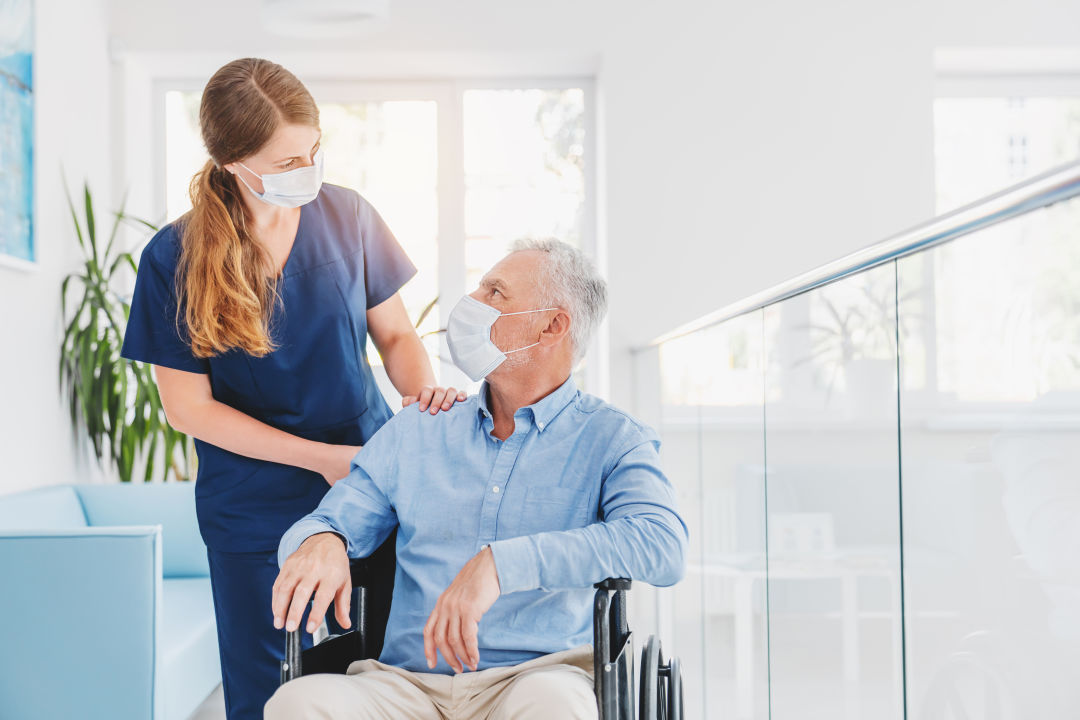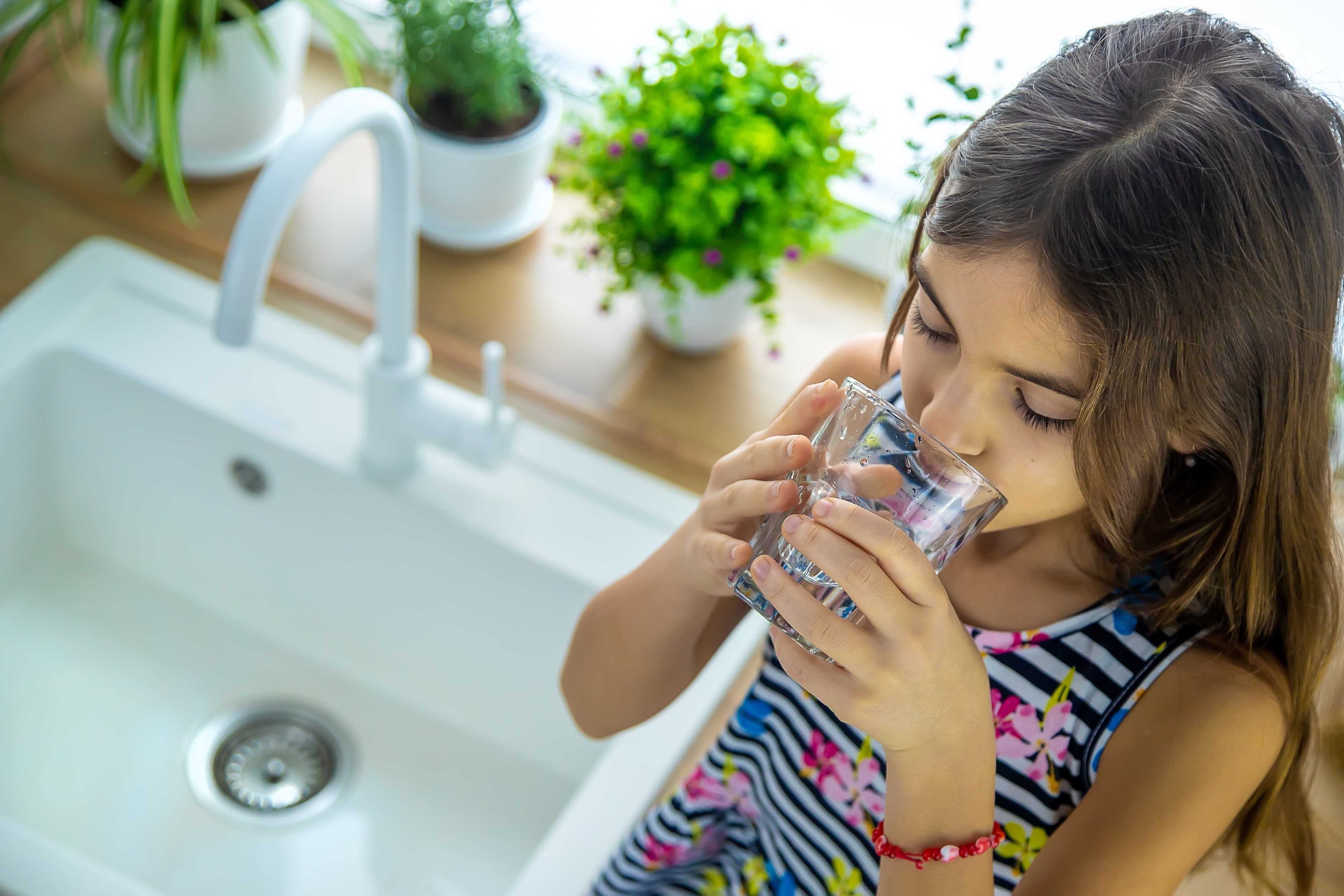Is Your Caregiver Following Covid-19 Safety Protocols?

If you have a loved one who requires at-home medical care, keeping them safe during the pandemic is a top priority. Hospitals and nursing facilities follow safety protocols like mask wearing, regular Covid-19 testing and personal protective equipment (PPE) advised by the Agency of Health Care Administration (AHCA) and the Florida Department of Health. But these agencies also advise that home health care companies follow these same protocols. Clients of these care agencies should be aware of them and ask if the agencies they are considering or contracting with are following them.
We asked Take Care Home Health CEO and owner Susanne Wise what her agency, which has been providing care for 26 years, requires of its caregivers—and how family members can keep their loved ones safe.

Take Care Home Health CEO and owner Susanne Wise.
Image: Courtesy Photo
Test for Covid-19 frequently (for example, weekly or biweekly)
Take Care's testing is self-imposed, meaning staff voluntarily get tested on a weekly or biweekly basis. Take Care's staff is also contracted to work for private clients in skilled nursing facilities, and the agency keeps a list of more than 50 skilled nursing facilities that have testing requirements for staff so that clients know which ones are safest. However, testing in facilities changes "according to positivity rates in the building," says Wise, and Take Care adheres to these changes.
"If a staff member tests positive for Covid-19, we require them to quarantine immediately," says Wise. "We then ask a series of questions, like whether the clients they've most recently worked with were masked, how long they were in contact with the client, and whether social distancing was applicable in the caregiving situation." Staffers are required to receive two negative Covid-19 tests before returning to work.
What if a client tests positive? "They must notify the agency so we can let staff know to get tested," says Wise. "Continued care may be required by a client's loved one or even a vaccinated staff member, because they still need care."
Institute temperature checks, monitor vitals and track symptoms
Take Care says it also monitors quarantine times if a staff member has come in contact with a positive case. And Take Care has provided care to clients with Covid— in the safest way possible.
Require masks (with the exception of medical exemptions)
Medical exemptions could include oxygen requirements or pulmonary issues. Take Care provides KN95 and N95 masks to staff and clients and receives a shipment of 200 new masks per day. Staff members also wear PPE like gowns, gloves and shields when appropriate. When entering a private home, everyone—including loved ones of the client—is required to wear a mask.
"Whether or not masks are applicable for clients, we still maintain aggressive cleaning protocol, of surfaces within the home, to make sure everyone in the household is safe," Wise says. "We work on an individual basis, however, because we have some clients with dementia or Alzheimer's disease who don't understand the idea of mask-wearing."
Adhere to the rules of nursing facilities.
Wise adds that Take Care never allows someone on shift who feels sick, a policy enacted even before the pandemic. Facilities will call Take Care if their Covid-19 positivity rate has increased or if one of their clients has tested positive and has to quarantine.
Encourage vaccination.
"We encourage vaccination in our staff members and even financially compensate them if they show us vaccine cards and have had both doses of an mRNA vaccine or a single dose of Johnson & Johnson," says Wise. A majority of the agency's employees are vaccinated, she says.
"Of course, our goal would be to have the entire staff vaccinated in the near future, but that may not be realistic," Wise adds.
The lack of mandatory vaccination for health care workers is a major national issue right now. Vaccination is strongly encouraged, but not yet required for medical staff in local hospitals like Sarasota Memorial, Manatee Memorial and Doctor's Hospital of Sarasota. According to an article by American Progress, out of 300 U.S. long-term care facilities, only 46 percent of aides and 57 percent of nurses had been vaccinated by the beginning of April 2021. However, in a press conference on August 18, President Biden announced that his administration will require nursing home staff to be vaccinated in order to continue receiving Medicare and Medicaid funding. This change was planned to be in effect by September, but has not yet taken place.
Clients request to be cared by vaccinated staff members almost daily, says Wise.
"Some clients have said they either want a vaccinated staff member caring for them or someone with a recent negative Covid test, and fortunately, as a private care agency, this is something we can accommodate," she adds. Private businesses are allowed to do so as an interest in safety to their customers, just as they can require employees to be fully vaccinated before returning to work.
However, in a recent article, Georgetown Law professor Lawrence Gostin wrote that employment in the United States is mostly "at-will." This means an employer can dismiss or fire an employee without a warning and for any reason, so long as it is not discriminatory against a protected class.
As for its clients, Take Care doesn't require vaccination but does strongly encourage it. The organization is monitoring when clients say they've been vaccinated and which vaccine they've had. "It's important to us to maintain that high percent of client base that's been vaccinated, to keep everyone safe," Wise says.
Make sure your caregivers update protocol based on state and national guidelines.
Since March 2020, Take Care has a task force that meets twice a week to discuss Covid-19 safety protocol based on CDC guidelines and the Florida Department of Health.
Other tips for protecting your loved ones.
Wise says that there are many precautions you can take as the primary caregiver for a loved one. First is wearing masks at all times, especially indoors. Choose to run errands like grocery shopping early in the morning or during slow hours. When returning home, wash your hands and don't touch your face.
She also encourages wiping down surfaces like doorknobs two to three times per day. Pay attention to your own symptoms and health as a caregiver, and get tested if you have been in contact with someone sick or starting to feel sick. You should also pay attention to the symptoms of any visitors or guests.
"Following CDC guidelines and limiting exposure as much as possible is recommended," Wise says, adding that she suggests outdoor visits if loved ones wish to socialize.



